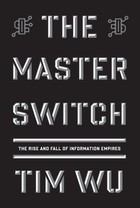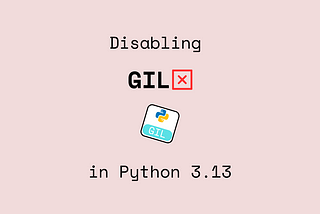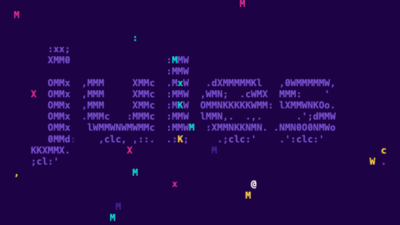The Death Knell for Powerful Ad Blockers
Google's upcoming deprecation of Manifest V2 extensions in Chrome represents more than just a technical update—it's a fundamental shift in how much control users can exercise over their web browsing experience. The transition to Manifest V3, while marketed as a security enhancement, effectively neuters the power of extensions like uBlock Origin that have become essential tools for millions of users.
The core issue isn't just about blocking advertisements. Manifest V2 extensions could intercept and modify network requests in real-time, providing unprecedented control over web content. This capability allowed developers to create sophisticated tools that could block tracking scripts, modify page content, and even enhance privacy protection. Manifest V3's declarative approach strips away much of this flexibility, limiting extensions to predefined rules and significantly reducing their effectiveness.
Understanding the Technical Implications
The migration from V2 to V3 introduces several critical limitations:
- Rule Limitations: Extensions are restricted to 30,000 static rules, compared to the virtually unlimited dynamic rules possible with V2
- Reduced Network Control: Background scripts can no longer intercept and modify network requests in real-time
- Performance Constraints: The declarative approach, while potentially more performant, sacrifices flexibility for efficiency
The Browser Wars Reignite
This transition is catalyzing a significant shift in browser preferences among privacy-conscious users and developers. Firefox's continued support for Manifest V2 extensions positions it as the primary refuge for users who refuse to compromise on ad-blocking capabilities. The browser landscape is experiencing a fragmentation that hasn't been seen since the early 2000s.
Several alternatives are gaining traction:
Firefox: The Privacy Haven
Firefox maintains robust support for powerful extensions while offering competitive developer tools. The browser's commitment to user privacy and extension flexibility makes it the natural choice for users migrating from Chrome.
Brave Browser: Built-in Protection
Brave's integrated ad-blocking eliminates the need for extensions entirely, using the same filter lists as popular ad blockers while maintaining Chromium compatibility.
Network-Level Solutions
Pi-hole and similar DNS-based blocking solutions are experiencing renewed interest. These systems provide network-wide ad blocking that's independent of browser choice, though they lack the granular control of browser extensions.
The Surveillance Economy Under Threat
The data reveals the extent of modern web tracking: a typical household generates thousands of tracking requests daily. Every connected device, from computers to smart appliances, continuously transmits telemetry data. This pervasive surveillance infrastructure depends on users' inability to effectively block these communications.
Chrome's Manifest V3 transition appears designed to preserve this surveillance economy. By limiting users' ability to block tracking and advertisements, Google ensures the continued flow of data that powers its advertising business model.
Temporary Workarounds and Enterprise Solutions
For organizations and advanced users, enterprise policies offer a temporary reprieve. Chrome's ExtensionManifestV2Availability policy can extend Manifest V2 support until June 2025, providing time for migration planning.
// Example enterprise policy configuration
{
"ExtensionManifestV2Availability": 2,
"ExtensionAllowedTypes": ["extension"],
"ExtensionInstallBlocklist": ["*"],
"ExtensionInstallAllowlist": ["cjpalhdlnbpafiamejdnhcphjbkeiagm"]
}
However, these solutions are temporary and require technical expertise to implement.
The Broader Implications for Web Freedom
This transition represents a broader trend toward platform consolidation and control. As web browsers become more restrictive, users lose agency over their digital experience. The ability to modify and control web content has been a fundamental aspect of the open web since its inception.
The developer community's response will likely shape the future of web browsing. If enough users migrate to alternative browsers, it could force Google to reconsider its approach. However, Chrome's dominant market position makes such a migration challenging.
Preparing for the Post-Manifest V2 World
Developers and users should begin preparing for this transition immediately:
- Evaluate Alternative Browsers: Test Firefox, Brave, or other alternatives with your essential workflows
- Implement Network-Level Blocking: Deploy Pi-hole or similar solutions for comprehensive protection
- Backup Extension Configurations: Export settings and filter lists before the transition
- Consider Enterprise Policies: For organizations, implement temporary V2 support policies
Conclusion: A Crossroads for Web Freedom
The deprecation of Manifest V2 represents a critical juncture in the evolution of the web. Users must choose between convenience and control, between Google's integrated ecosystem and the freedom to customize their browsing experience.
This moment demands active participation from the developer community. The choices we make—which browsers we support, which tools we recommend, and how we architect web applications—will determine whether the web remains an open platform or becomes increasingly controlled by a few dominant players.
The web's future depends on our collective response to this challenge. Will we accept diminished control in exchange for convenience, or will we fight to preserve the open, customizable web that has driven innovation for decades?










